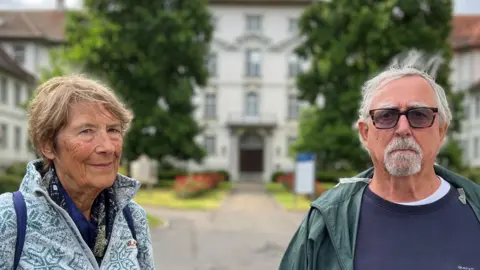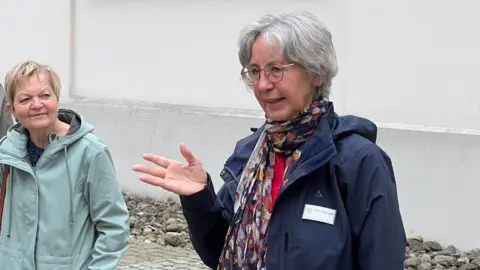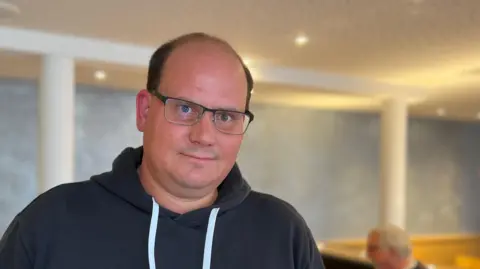Returning to Bad Wurzach 80 years after liberation
 BBC
BBCA group of Jersey internees have returned to an internment camp in southern Germany 80 years after their liberation.
They were shown around the camp, near the town of Bad Wurzach. where they were forced to live behind barbed wire from 1942 to 1945.
German troops rounded up those who were British born and their families before sending them to internment camps during the Occupation.
More than 600 people ended up in Bad Wurzach and of those about 200 were children.
'Smuggle a pram'
David Drage was the youngest boy to be deported with his family and taken to the internment camp at nine months old.
He said: "My father managed to smuggle a pram all the way from Jersey to Bad Wurzach by talking to sailors and railway men."
Mr Drage said "it got used by all the children" and his parents "were reluctant" to talk about what happened but he was "fairly inquisitive so I got most of the important stories out of them".
"My own personal memory is the moment of liberation when the French tank came along and being a little child who had grown up in this quiet place I was frightened to death."

Gisela Rothenhausler, who took the internees on the tour of the internment camp, said "it's always a great moment for us" when visits like this happen.
"The first big visit that I experienced was in 2005 and some of the internees were a bit reluctant to come here but what was great was they left as friends after seeing how much Germany had changed," Ms Rothenhausler added.
She is part of the Bad Wurzach Partnerschaft Committee which works with those in Jersey to help build bonds between the island and the German town.
Local German media also covered the visit, with internees being interviewed by Patrick Müller from the Schwäbische Zeitung.
He said he wanted to speak to them "because it was interesting for the people to hear what the people who were interned at the camp feel and how that has changed over the years".
He added: "I hope a lot of people will take the chance to speak to them and hear their stories."
The group from Jersey will also visit the town of Biberach where about 1,000 people remained in Camp Lindele while others were taken to Bad Wurzach.

Follow BBC Jersey on X and Facebook. Send your story ideas to [email protected].
